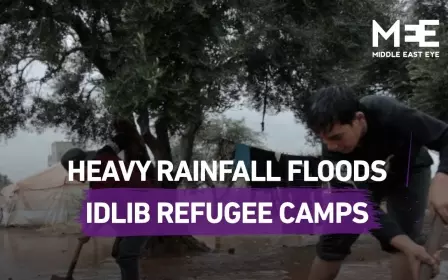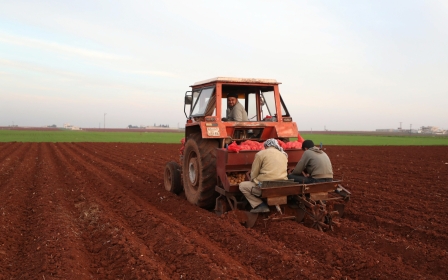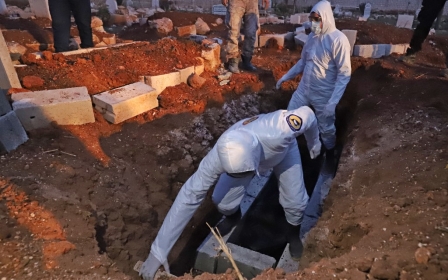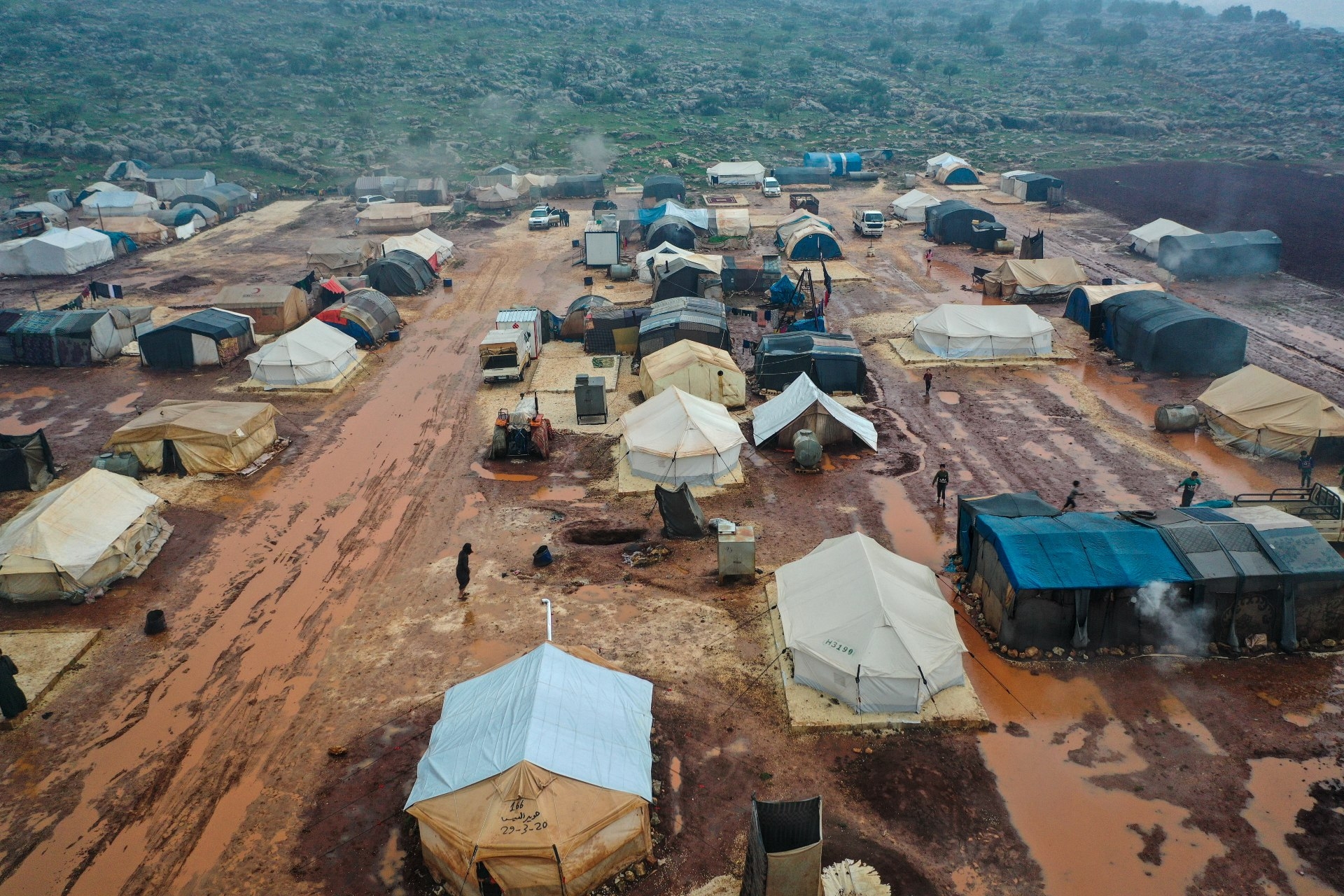
In pictures: Floods devastate camps in Syria's Idlib
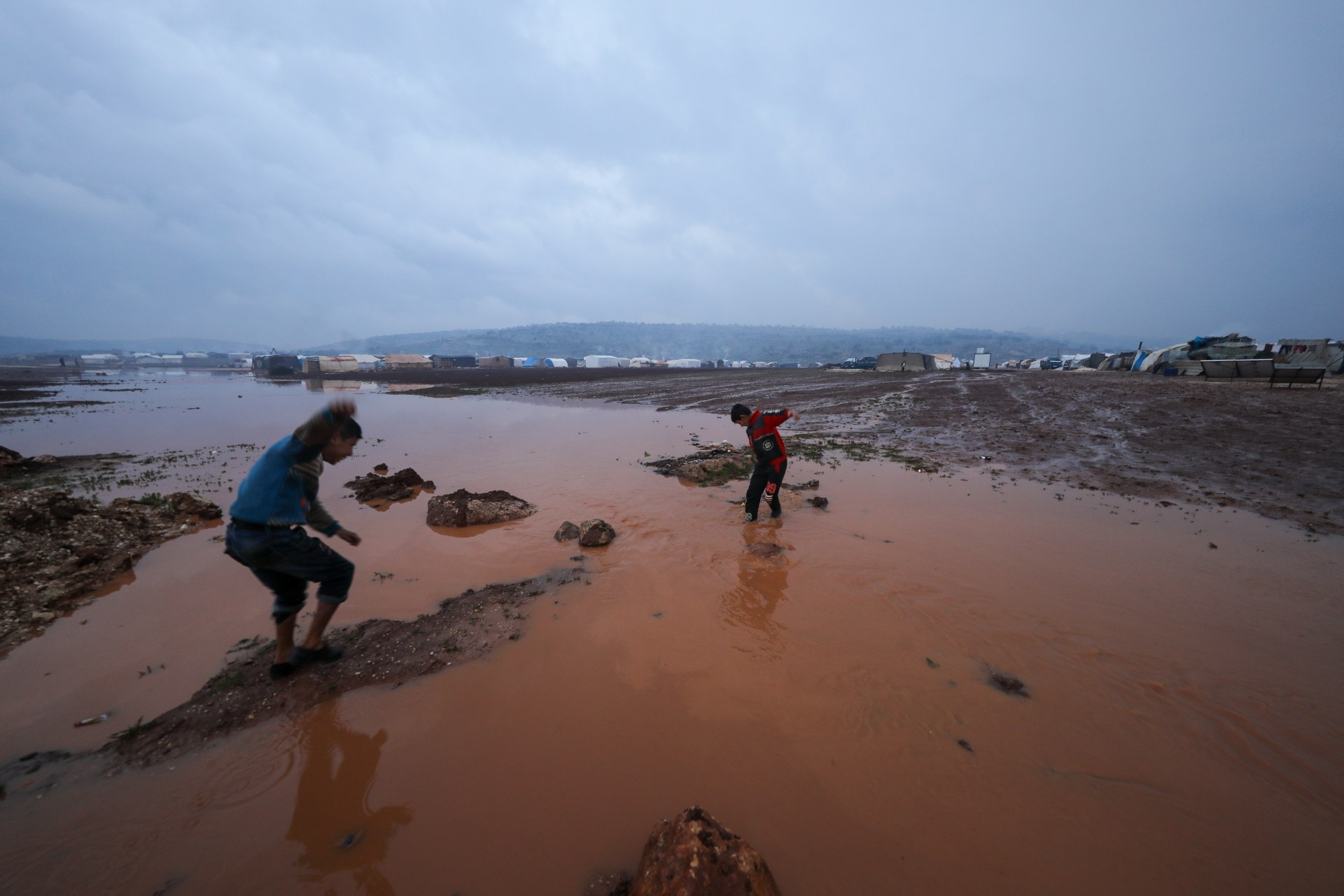
A massive storm has wreaked havoc on the communities of displaced Syrians in Syria's northwestern Idlib province. According to NGO Syria Response Coordinators, the rainfall has damaged 145 camps, in addition to several roads leading to some of them. (MEE/Ali Haj Suleiman)
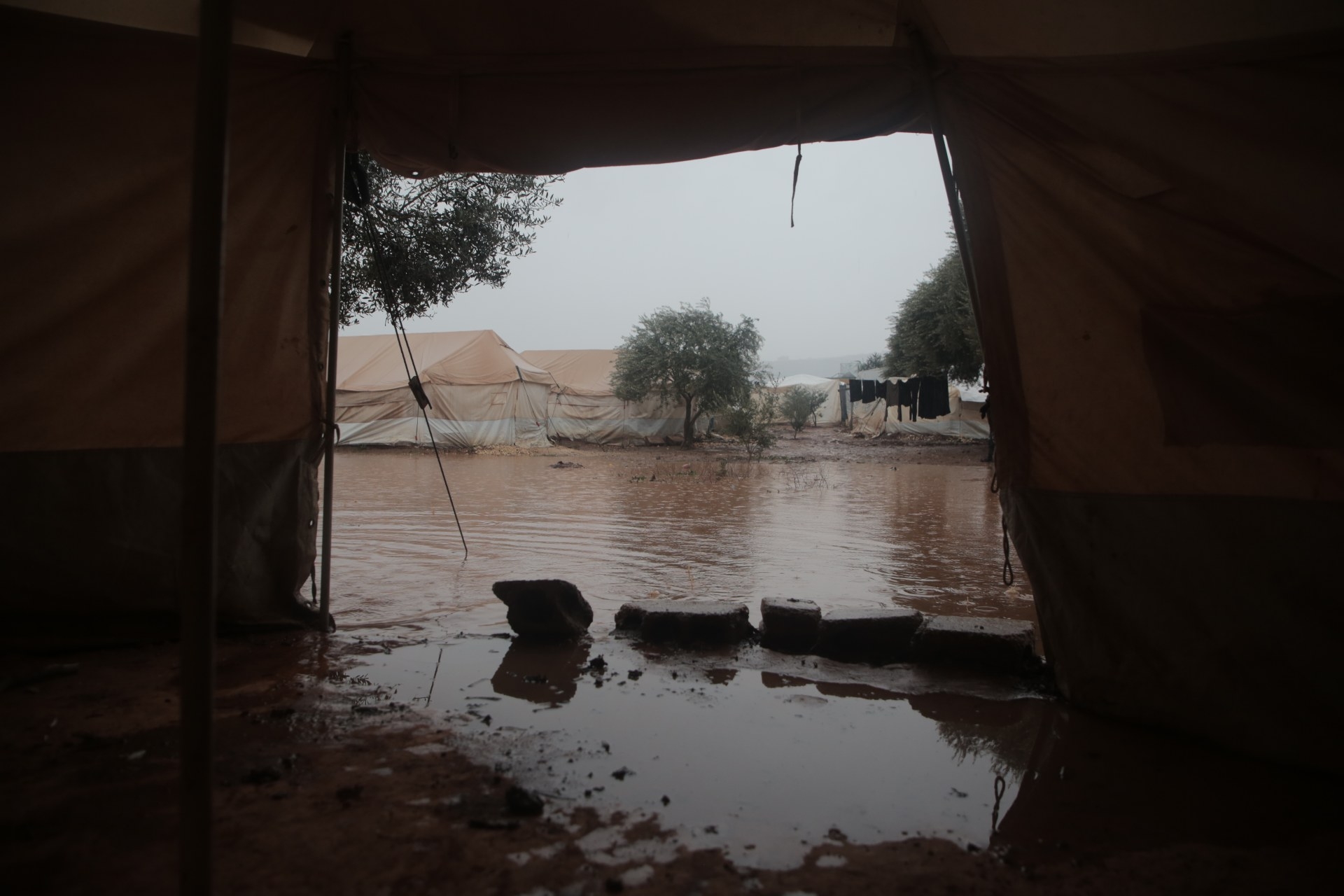
Some 278 tents have been completely destroyed, while 513 tents were partially damaged, the Syria Response Coordinators said. Camps in and around Idlib city - Kherbat al-Jawz, Maarat Masrin, Killi, Kafr Yahmoul, Hazano, Harbanush and Zardana - have all been affected, as well as along the Turkish border in northern Aleppo province.
Around two million Syrians displaced from various parts of the country by fighting now live in Idlib and its environs, often in squalid camps.
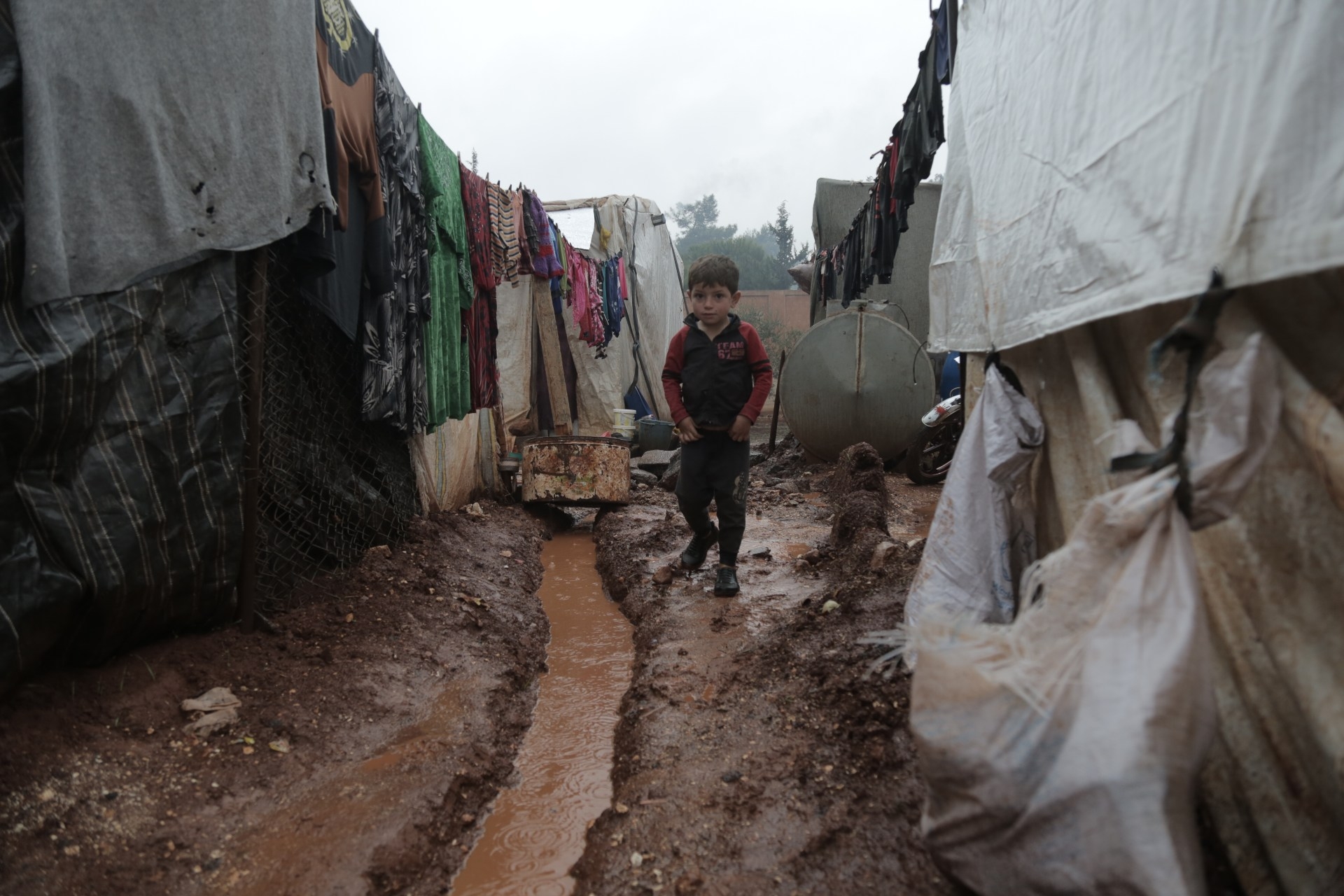
More rainfall is expected. “The rain has not stopped for several days, and we have been suffering from water pooling between tents,” Anas Jomaa, the director of the Thanawiya camp in Harbanush, north of Idlib, told Middle East Eye.
“We have transported women and children outside the camp out of fear of more flooding.”
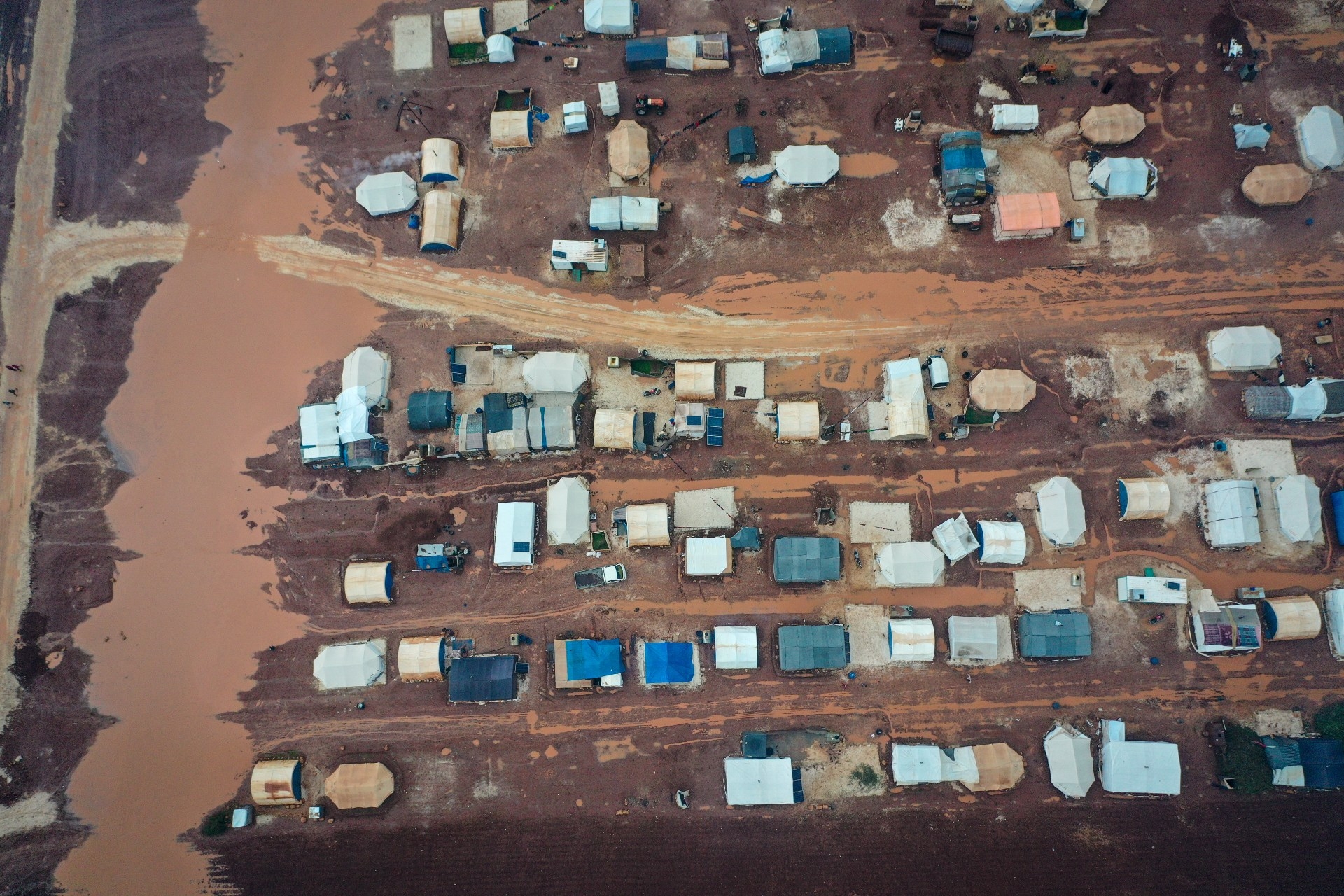
“Rainwater has surrounded more than 500 families, and the road has been cut off since two days ago,” said Ahmed al-Khalif, a displaced person in Umm al-Jurn border camp.
“No machinery can now enter the camp due to bad roads. When rain falls, we become besieged, and the camp turns into an isolated island, where we cannot even secure drinking water.”
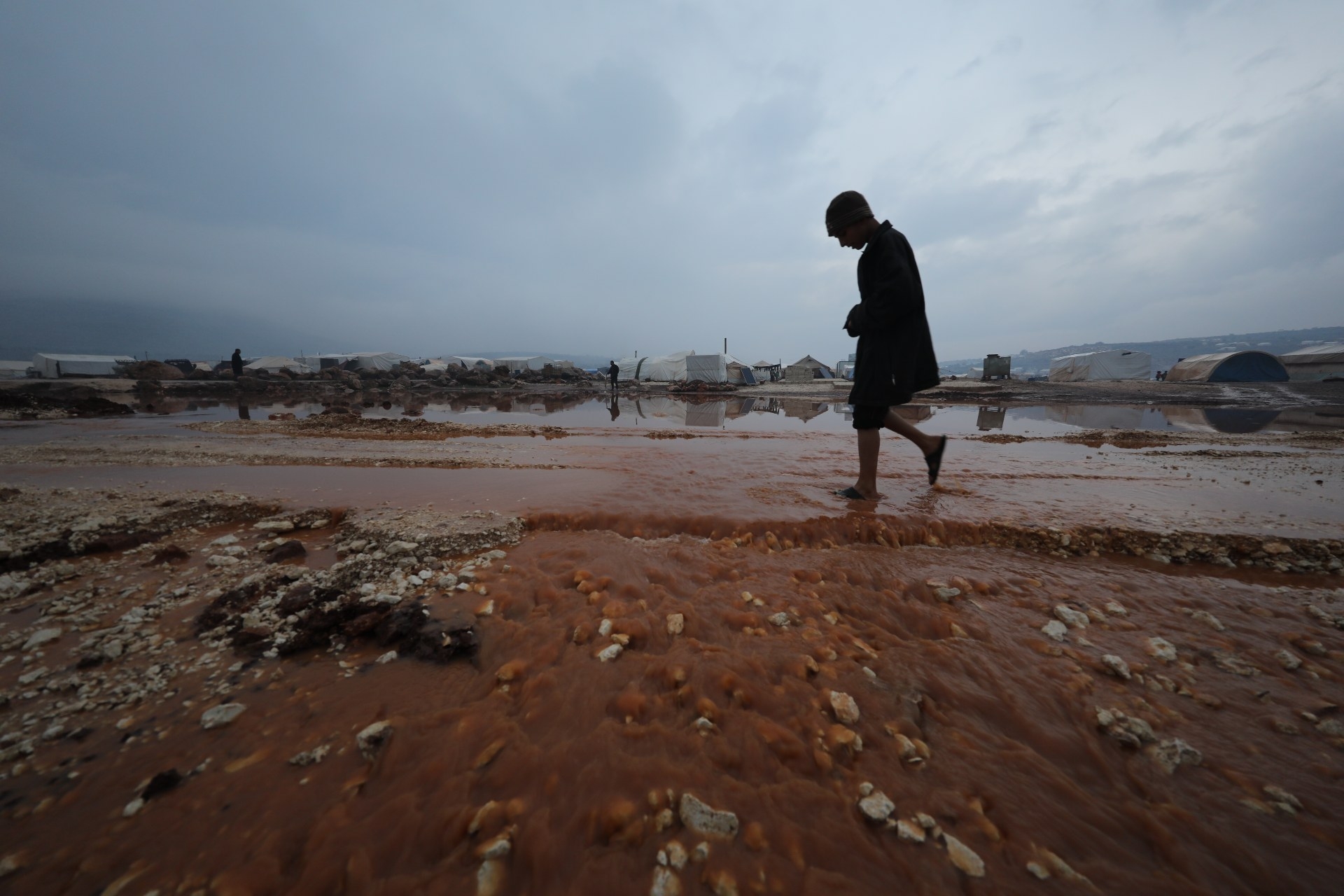
Abu Jomaa, a displaced person in al-Watat camp in Kafr Oruk in the northern Idlib countryside, said the rain has drowned some camps and forced many families to leave their homes during the night and take shelter elsewhere.
Since last year’s rainstorms, the White Helmets rescue group have worked to prepare camps before heavy rains by opening waterways and roads, in addition to other infrastructure work. But the intensity of the rainfall has made controlling the damage very difficult.
Middle East Eye delivers independent and unrivalled coverage and analysis of the Middle East, North Africa and beyond. To learn more about republishing this content and the associated fees, please fill out this form. More about MEE can be found here.


